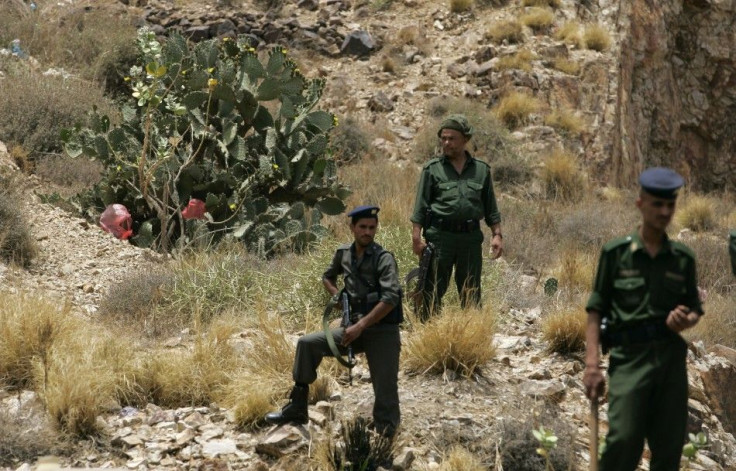American Teacher Reported Killed By Terrorists In Yemen

Motorcycle-riding gunmen shot and killed an American teacher in Yemen Sunday, police said, and an al Qaeda-linked Musim extremist group claimed responsibility.
Meanwhile, the Yemeni government said its forces killed up to 14 militants in clashes, Reuters reported.
The attacks underscore the challenges facing President Abd-Rabbu Mansour Hadi, who took office last month after a year of massive protests against his predecessor, longtime ruler Ali Abdullah Saleh.
A police source in the city of Taiz told Reuters a gunman riding on a motorcycle driven by an accomplice shot a American teacher of English who was also deputy director of a language school, the Swedish Institute. The institute identified the victim as Joel Shrun and said he was born in 1983. But CNN reported the head of security in the province, Mohamed Saidi, identified him as Joel Sharm.
The U.S. Embassy in Sanaa said it had received reports of an American death and was investigating, but did not confirm the killing.
On Thursday, tribesmen demanding the release of prisoners kidnapped a female Swiss teacher in Hodeida on the Red Sea coast, officials told CNN.
Imprisoned tribesmen are being held in the Hodeida Central Prison for disturbing travelers and creating roadblocks.
The gunmen, who escaped, were believed to be linked to al Qaeda, the police source said.
This operation comes as a response to the campaign of Christian proselytizing that the West has launched against Muslims, an unidentified person said in a text message to journalists, claiming responsibility on behalf of the al Qaeda-linked Ansar al-Sharia (Partisans of Islamic Law).
Islamic militants often accuse Western aid groups of proselytizing.
Yemen has seen an escalation of al Qaeda violence since Hadi took office in February vowing to fight the Islamist network.
Taiz, 120 miles south of the capital Sanaa, is a commercial hub where many foreigners live and work. It was a flashpoint for protests against Saleh.
Also on Sunday, a government warplane bombed Islamist militants in the southern city of Jaar, causing people to flee their homes, residents said. There were no immediate reports of casualties.
Ansar al-Sharia captured Jaar in Abyan Province in March last year after the outbreak of protests against Saleh and have turned it into their main base in southern Yemen.
Daily clashes break out around areas controlled by militants in southern Yemen. A local official said that up to 14 militants were killed in artillery attacks and clashes on Saturday north of the Abyan provincial capital of Zinjibar, the area of Bagdar and the town of Jaar.
In early March, militants killed more than 110 soldiers in twin suicide attacks and said they had also captured some 70 soldiers.
Later Sunday, the state news agency Saba reported that Hadi decreed that civilian victims of the protests against Saleh's rule be honored as martyrs and ordered that their families be treated like the kin of soldiers killed in the line of duty.
Hadi also made several appointments to key posts.
Ahmed Masoud al-Alwani was made new chairman of the national airline Yemen Airways (Yemenia), replacing Saleh's son-in-law Abdul Khaleq al-Qadi, who was ousted in December after airline workers disrupted operations.
Hadi also named new heads for the police academy, the Civil Registration Department and the country's al-Thawra hospital.
But critics say Saleh's relatives remain in control of the security establishment and armed forces, fanning suspicions Hadi is incapable of standing up to the former president's allies.
Those suspicions appeared to have been confirmed by last week's transfer of Saleh's nephew Tareq, to the post of commander of the Republican Guard's third brigade, from the command of the Private Presidential Guards.
© Copyright IBTimes 2025. All rights reserved.





















